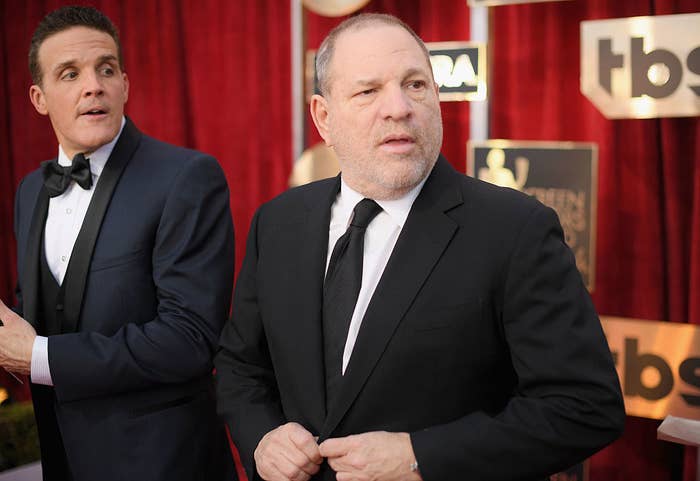
A pair of New York lawmakers are aiming to end the sort of confidentiality agreements that shield workplace sexual harassment and that have been cited in the ongoing Harvey Weinstein scandal.
The new language to an existing bill, to be introduced on Friday, would void any contract provision where an employer can force an employee to keep quiet about sexual harassment and discrimination claims. It would include claims that are settled in arbitration, where nondisclosure agreements routinely keep the details of allegations secret.

State Sen. Brad Hoylman, who is cosponsoring the bill with Assemblywoman Nily Rozic, said the legislation was rewritten after sexual assault and harassment allegations against Harvey Weinstein were published by the New York Times and the New Yorker. Several people contacted in those stories said they were prevented from speaking out because of nondisclosure agreements.
"As we've seen in the Weinstein matter, these types of settlement agreements perpetuate harassment of other people for decades," said Hoylman, a Manhattan Democrat who counts Weinstein among his constituents.
Hoylman added that because of the secrecy surrounding confidentiality agreements, no one knows how extensive they are.
"Employees who are in a position of very little agency, power, are being forced, it would appear, to sign away their rights," he said.
The bill amends the state's labor law and only applies to formal employment contracts or agreements. The allegations against Weinstein run that gamut, with misconduct or retaliation reportedly experienced by assistants and other employees. Other claims have come from young actors who Weinstein allegedly asked to private meetings to discuss potential roles — outside any employment that could be regulated by state law.
But Rozic, a Democrat, said the recent attention to sexual misconduct allegations against famous figures like Weinstein has made people more open to talking about sexual misconduct.
"There are men in every industry in positions of power who use that against ambitious women who are starting out in their careers," she said.
And though the issue is a longstanding and multifaceted one, she said the new legislation aims to chip away at the workplace norms that leave employees at a disadvantage.
"It focuses on not just the physical power, but the economic power someone can hold over you," she said.
The legislation is the first in the country to go so far and would completely change the landscape of sexual harassment settlements, said Ann Fromholz, who practices employment law and does workplace investigations for the Fromholz Firm. California last year similarly banned confidentiality agreements in cases of workplace harassment, but only where a potential felony was involved.
Currently, settlements allow employers to take back payouts in part or in full from employees who break confidentiality agreements.
The new bill "is ensuring the light can still be shone on bad behavior, even if the company pays money to avoid the risk of litigation," she said.
The dollar amount of settlements may still remain secret under the bill, but employees would be allowed to talk about their experiences.
"In the end that benefits companies, because if people talking and complaining stops sexual harassment — and makes the workplace safer — that's better for everyone," Fromholz said.
